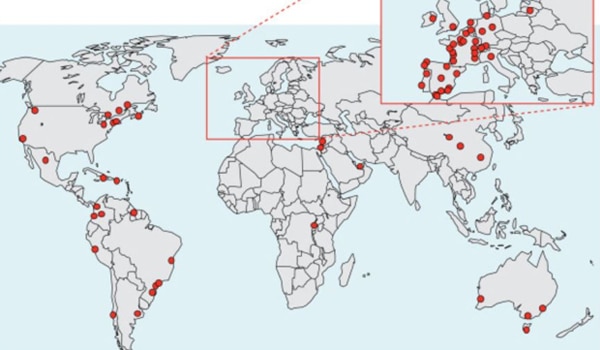
“Emerging infectious diseases require a global approach and adaptive tools to allow for rapid and comprehensive characterisation of the risks associated with the disease, particularly in pregnancy. Pregnant women are particularly vulnerable to infections because of their relative immunosuppressed state, restricted cardiorespiratory capacity, and the potential for adverse pregnancy or perinatal outcomes (e.g. preterm birth, vertical transmission, fetal growth restriction, fetal anomalies, and death), as observed with severe acute respiratory syndrome-related coronavirus, Middle East respiratory syndrome-related coronavirus, malaria parasites, dengue virus, Zika virus, and chikungunya virus.
“Robust data acquisition on the effect of emergent pathogens on pregnancy is often absent, and often data are available after considerable delay, leaving scientists and clinicians seeking knowledge to depend solely on intuition, extrapolation, and case series as they emerge. The severe acute respiratory syndrome Covid-19 pandemic is no exception.
“Large cohorts are required to allow for accurate risk estimates, and therefore a global perspective is needed. To scientists and clinicians involved in the care of pregnant patients during a pandemic, this situation feels like déjà vu, given the many similarities to the Zika virus epidemic only five years ago.
“To tweak resources, we have adjusted the Zika virus international web registry to create COVI-Preg, a structured data collection tool available to any facility assessing pregnant patients for SARS-CoV-2 infection. Today, with increased mobility and considerable migration, we have to use the modern tool of worldwide and immediate communication to trigger knowledge sharing and prepare for rapid assessment of existing and future emergent pathogens. This registry and its associated international network will be organised to be rapidly adaptable to any other emerging infectious agent in the future. The feasibility of this global responsive and customisable structure for future emergent pathogens is supported by the strong platform of well-established collaborations with 198 antenatal clinics from 23 countries in Africa, Asia, Europe, Oceania, and the Americas (see figure above). This structure will allow for the creation of a large dataset capturing global information in an attainable and realistic manner, with affordable costs and an acceptable timeframe.
“For the ongoing Covid-19 pandemic, we hypothesise that the collected data will allow researchers and health-care professionals to better characterise the disease course and spectrum, quantitatively estimate associated risks, and identify specific risk factors that can be used to define screening strategies in pregnant women and adequate prevention measures, and to direct specific and early clinical management of women and fetuses at risk. In the spirit of open science and data sharing, the collected data will be available to any research group provided that they have a clear, non-redundant research question and biomedical research ethics committee approval. Any health-care provider supporting the registry by providing well documented cases will be considered as a collaborator of the registry in any future scientific publications.”
[Editor’s Note: As the figure shows, most collaborating centres are in Europe, North America and Latin America. We encourage centres in Africa and Asia to join too.]
SOURCE: The Lancet, by Alice Panchaud, Guillaume Favre, Leo Pomar, et al. 27 April 2020 ; FIGURE: Network of antenatal clinics collaborating in the COVI-Preg registry, as of 23 April 2020



